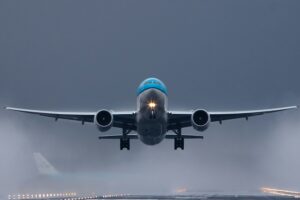The Science of Smooth Operations: Boosting Aviation Efficiency


Aviation efficiency is the cornerstone of a successful airline and airport operation. Smooth operations not only ensure safety but also improve cost-effectiveness and passenger satisfaction. Every aspect of aviation impacts overall performance, from flight scheduling to ground handling. Airlines prioritizing aviation efficiency experience fewer delays, lower operational costs, and better resource management.
Optimizing flight schedules is one of the most critical components of aviation efficiency. Well-planned schedules prevent bottlenecks and reduce the strain on airport infrastructure. Additionally, using real-time data for predictive maintenance helps airlines avoid unexpected mechanical failures, keeping flights on time and passengers happy.
Streamlining Ground Operations
Ground operations directly influence aviation efficiency. Efficient boarding processes, luggage handling, and refueling operations save valuable time. Airports implementing smooth operations strategies reduce turnaround times, allowing aircraft to spend more time in the air and generating revenue.
Technology plays a pivotal role in streamlining ground operations. Automated baggage systems, digital check-ins, and intelligent gate management improve operational performance while minimizing human error. Training ground staff to follow standardized procedures further supports It. Continuous monitoring ensures that minor delays do not escalate into major disruptions.
Optimizing Flight Management
Flight management systems are essential for enhancing aviation efficiency. Advanced software allows pilots and air traffic controllers to optimize routes, reduce fuel consumption, and maintain punctual schedules. Real-time weather updates and air traffic data allow for rapid adjustments, ensuring that flights remain safe and efficient.
Airlines that focus on operational efficiency leverage data analytics to monitor aircraft performance. Fuel-efficient flight paths, engine optimization, and weight management contribute to smoother operations. By integrating technology and human expertise, airlines can significantly enhance aviation efficiency without compromising safety or service quality.
Improving Maintenance and Safety Procedures
Maintenance and safety protocols are at the heart of aviation efficiency. Scheduled maintenance ensures that aircraft operate reliably, minimizing unexpected delays. Predictive maintenance uses sensors and analytics to anticipate issues before they become critical, allowing for timely interventions.
Safety checks, both routine and thorough, directly affect operational performance. Pilots, crew, and maintenance teams who follow strict safety guidelines contribute to smooth operations and enhance passenger confidence. By maintaining high safety standards, airlines prevent costly delays caused by technical failures or safety concerns.
Leveraging Technology for Operational Excellence
Modern technology provides airlines with tools to boost aviation efficiency. Artificial intelligence, machine learning, and automation simplify complex processes. For example, AI-driven scheduling systems allocate resources based on real-time demand, optimizing aircraft and crew assignments.
Automation also improves airport operations, from self-service check-ins to automated baggage sorting. Airlines that embrace digital transformation experience smoother operations, reduced costs, and higher passenger satisfaction. By continuously innovating, the aviation industry ensures that efficiency remains a top priority.
Enhancing Passenger Experience Through Efficiency
Passenger satisfaction is closely linked to aviation efficiency. Smooth operations minimize delays, streamline boarding, and improve on-time performance. Travelers who experience efficient flights are likelier to become loyal customers, positively impacting airline revenue.
Airlines can enhance the passenger experience by integrating mobile apps, real-time flight notifications, and personalized services. When operations run efficiently, staff can focus on delivering exceptional customer service rather than reacting to disruptions. Consequently, efficient processes create a positive feedback loop, benefiting passengers and airlines.
Measuring and Sustaining Aviation Efficiency
To maintain smooth operations, airlines must continuously measure performance metrics. On-time departures, turnaround times, and fuel consumption are critical indicators of aviation efficiency. Data-driven insights allow airlines to identify bottlenecks, allocate resources effectively, and make informed operational decisions.
It requires ongoing training, technology investment, and a continuous improvement culture. Airlines that regularly review procedures and implement innovative solutions maintain a competitive edge. By prioritizing efficiency, the aviation industry ensures reliable, cost-effective, and safe operations for all stakeholders.
It is not a single initiative but a combination of strategic planning, technological integration, and disciplined execution. By focusing on smooth operations, airlines can improve safety, reduce costs, and deliver a superior passenger experience. Every step, from optimizing flight schedules to leveraging predictive maintenance, contributes to operational excellence.
Airlines prioritizing aviation efficiency demonstrate that a commitment to smooth operations benefits everyone, from passengers to employees and investors. With continuous improvement and innovative technology, aviation can reach new heights in efficiency and performance.
